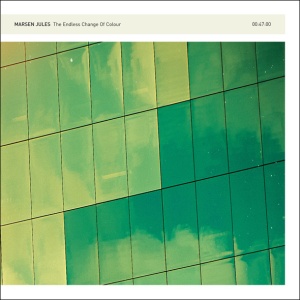Nicholas Szczepanik – Not Knowing
CD TANGENT001 Time: 52:56
Label: http://www.desirepathrecordings.com/ Artist: http://www.nszcz.com/
Auditioning long form musical works take time and with the many modern distractions it’s often difficult to dedicate an extended period to focused listening, but for Not Knowing I think you’ll want to make the time (especially if you are familiar with Nicholas Szczepanik’s previous work such as Please Stop Loving Me). In fact, if one is in the right frame of mind (like in a state of meditation, self-hypnosis or deep relaxation) the sense of time is often compressed, and one wonders ultimately where the time has gone.
This piece was originally available in a shorter version on the limited 12 part release CD3 series Ante Algo Azul from 2011, and it was a favorite of mine back then. So, I was delighted to hear that an extended version would be released by Desire Path Recordings as part of their new Tangent series.
I liken Not Knowing, which is different in form and sound from PSLM, to a dream sequence in roughly four parts, although there are threads of sound that keep the piece connected throughout. The first 12 minutes or so is a deeply pulsed and hypnotic mediation that brings one to where memories and dreams might become lucid, but still out of tangible reach. It’s at this point where an imagined orchestra appears from the ether and it flows. Is it a literal sample of another piece or is it combined with electronics? It appears like unresolved memories in a dream. I can hear chords of Elgar…wait, then Dvorak…but wait, there’s the flow of Debussy, a sleight of hand used by other composers, hiding themes from elsewhere, leaving the brain to search for a source, and the sound is ethereal and uplifting (dare I say even heavenly for the non-believers?).
Then the music and perceived vision seems to drift out of reach and almost dissolves. At the point in a dream when one loses touch, but wants to return to the visions, and then the melodies and harmonies arrive again, but in a shrouded form with layers of choral vocals. And within this new realm the piece moves into a less recognizable and deeper unknown territory before gently returning to the original sonic thread, albeit in an altered and transitional chordal-tone state and ultimately the arrival back into the warmth of the visceral pulses.
Although quite different in presentation and instrumentation, I compare the journey in this album to that of some other favorites of mine like Vangelis Papathanasiou’s Rêve from the album Opéra Sauvage and Tangerine Dream’s Desert Dream from their double live album Encore. The development and sound architecture of the piece is clearly influenced by the works of French electronic composer Éliane Radigue, to whom Szczepanik dedicates the album.
Marsen Jules – The Endless Change Of Colour
12k Label – 12k1074 – CD Time: 47:00
Website: http://www.12k.com/index.php/site/releases/the_endless_change_of_colour/
When I was younger and had a completely untrained eye for seeing, as in art of any form, I didn’t realize how many colors went into what I saw, whether in a landscape or an object (same in the musical parallels). It was later, seeing artwork at a museum (paintings up-close), dramatically enlarged photos, and a friend’s work in college (artist, Allen Hirsch) that I started to understand the density and complexity of color–as well as in sound and music, the overtones, harmonics and phasing in addition to the pure waves.
The Endless Change Of Colour affects me in two ways, creating a state of peaceful timelessness (wondering where that nearly-an-hour went) as well as producing a state of nearly motionless cascades of blending sounds that transmute into a sense of relaxing in a stream bed of flowing water on a warm summer’s day–when all else falls away and what remains is that moment. All of this from a generative piece of music built from a single phrase on an old jazz record split into three audio stems. The sounds (and side-effects) that without closer examination and contemplation, we wouldn’t normally sense except for the benefit of the time that this work seems to warp and retrograde during its existence.
There are brief moments when almost familiar sounds enter, only to be absorbed back into the metamorphosing blend. I hear some parallels to the effects created by Nicholas Szczepanik’s brilliant album Please Stop Loving Me, although the feeling in Endless borders on that of a gentle voice on the edge of a dream–a peaceful sense of belonging.


